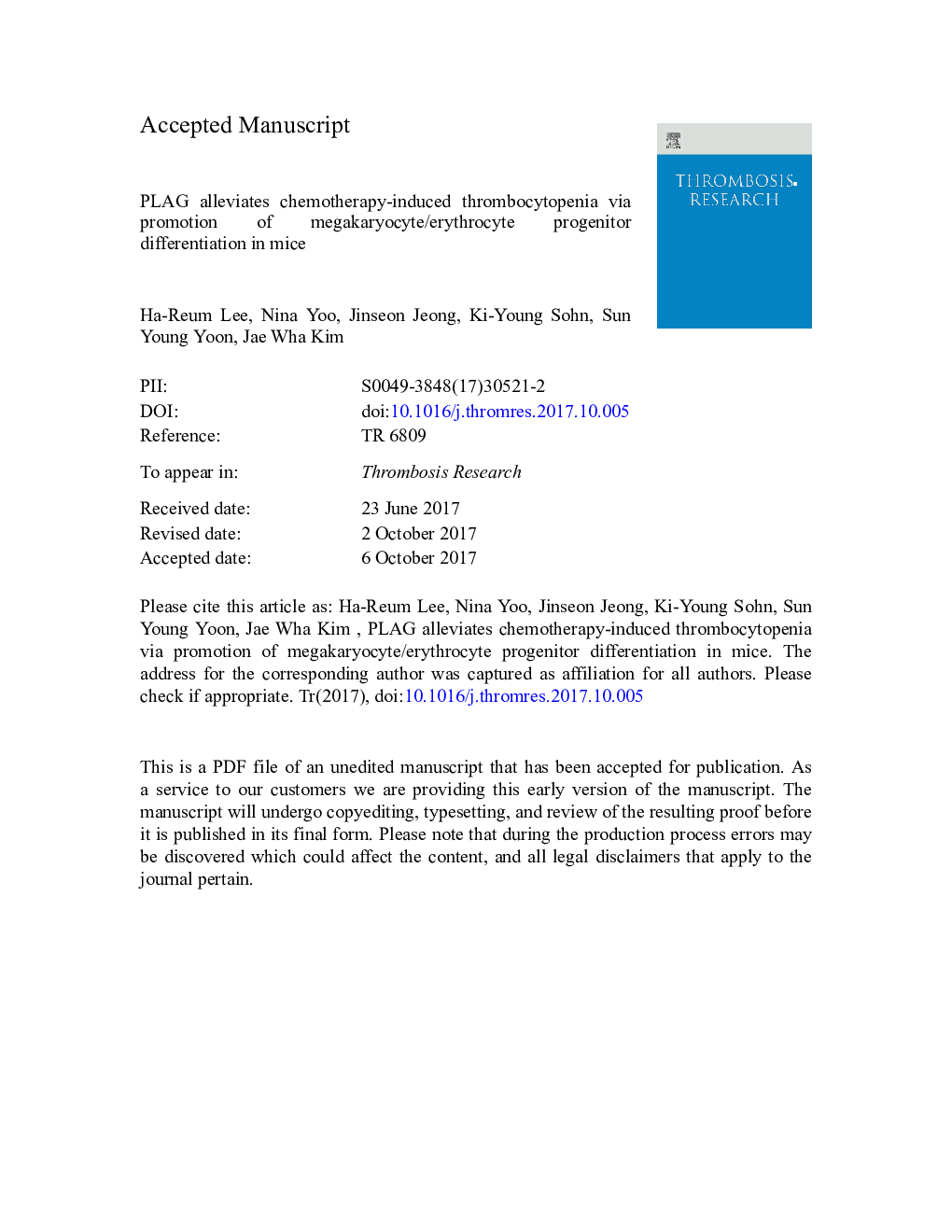| Article ID | Journal | Published Year | Pages | File Type |
|---|---|---|---|---|
| 8679708 | Thrombosis Research | 2018 | 29 Pages |
Abstract
Previously, PLAG (1-palmitoyl-2-linoleoyl-3-acetyl-rac-glycerol, acetylated diglyceride) was reported to have an effect on the proliferation of hematopoietic stem cells (HSCs) or to contribute to the prevention of chemotherapy-induced neutropenia. In this study, we examined the role of PLAG in the differentiation of bone marrow cells from HSCs into progenitor cells in mice. After 15Â days, the lineage-negative cells, especially megakaryocyte/erythrocyte progenitors (MEP), were significantly increased in mice that received daily PLAG administration compared to those in the untreated mice. Furthermore, we explored the possibility that the PLAG-induced increase in MEP will contribute to reduction of chemotherapy-induced thrombocytopenia (CIT) in a thrombocytopenia mouse model. Mice were administrated 5-fluorouracil (5-FU) and PLAG. After 7Â days, bone marrow cells were analyzed. Treatment with 5-FU powerfully decreased myeloid precursor populations and treatment with 5-FU/PLAG resulted in reduction of decreased myeloid progenitor cell numbers. In addition, numbers of circulating platelets were also increased by PLAG treatment. Taken together, PLAG plays a role in differentiating HSCs toward MEP and alleviating chemotherapy-induced bone marrow cell reduction. Thus PLAG shows its potential to augment the therapeutic effect of anti-cancer drugs-induced thrombocytopenia.
Related Topics
Health Sciences
Medicine and Dentistry
Cardiology and Cardiovascular Medicine
Authors
Ha-Reum Lee, Nina Yoo, Jinseon Jeong, Ki-Young Sohn, Sun Young Yoon, Jae Wha Kim,
